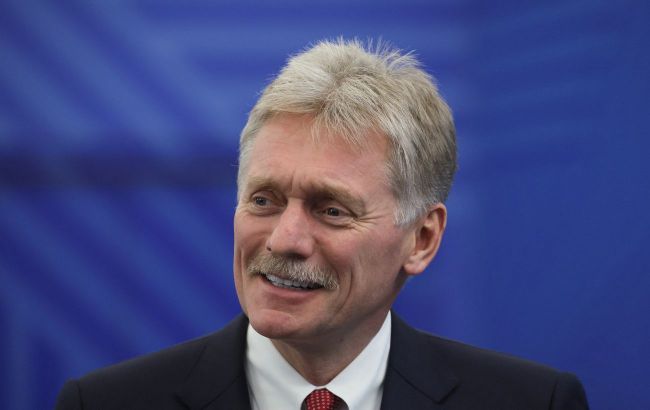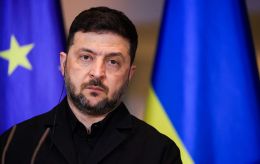Russia warns of 'double-edged' backlash as EU moves to tighten sanctions
 Photo: Kremlin Press Secretary Dmitry Peskov (Getty Images)
Photo: Kremlin Press Secretary Dmitry Peskov (Getty Images)
Russia is not going to "give in to pressure" from Western countries, which plan to impose tougher sanctions against it. Europe and the US will not be able to force Russia into negotiations with Ukraine this way. In addition, the Kremlin has once again started threatening the West, says Kremlin Press Secretary Dmitry Peskov.
According to the spokesman for Russian President Vladimir Putin, the 18th sanctions package planned by Europe will not lead to the end of the war in Ukraine. He said Russia cannot be "forced by power."
"Only logic and arguments can make Russia sit at the negotiating table. It is impossible to force Russia to yield to any pressure or force," he stated.
In addition, Peskov once again resorted to threats against European countries. He said the Kremlin does not doubt that the new sanctions package against Russia will be adopted. But there will be an “appropriate reaction.”
"Sanctions are a double-edged sword," Peskov tried to threaten.
The Kremlin spokesman also called the EU sanctions "illegal" again.
Sanctions against Russia
Meanwhile, Europe still cannot approve the 18th sanctions package against Russia because it is being blocked by pro-Russian Slovakia. Pro-Russian Hungary is also resisting the sanctions blow against the Kremlin. Bratislava and Budapest claim that the new sanctions would allegedly harm the economies of Slovakia and Hungary.
Trouble for the Russians came from another direction: US President Donald Trump finally supported a new sanctions bill against Russia and buyers of its energy resources, Republican Senator Lindsey Graham says. The bill could be passed as early as July.
Back in early April, Senator Graham introduced the bill proposing severe sanctions against Russia for refusing to pursue lasting peace with Ukraine. For the first time, the bill focused not only on Moscow itself, but primarily on buyers of its key export — energy.

